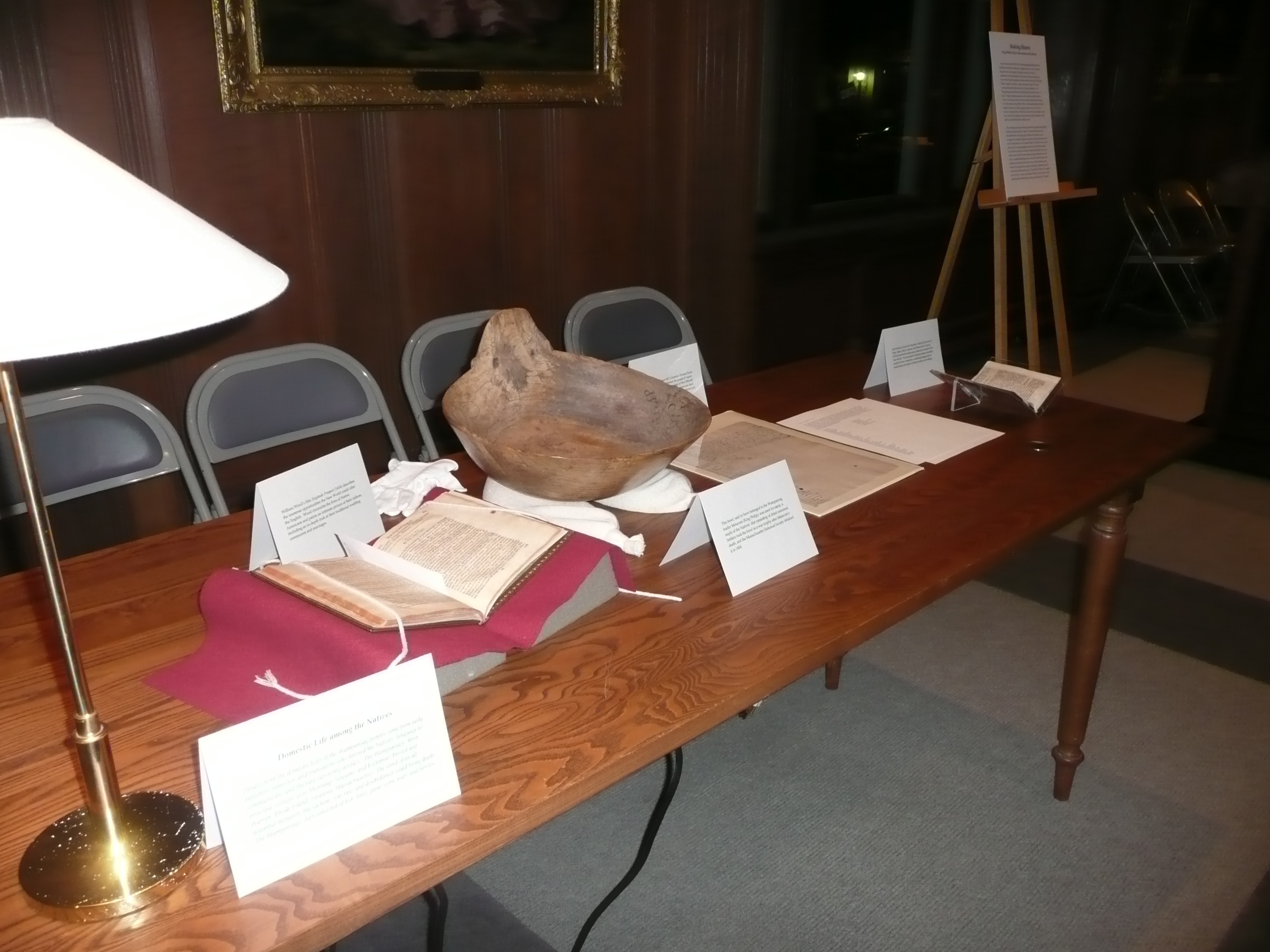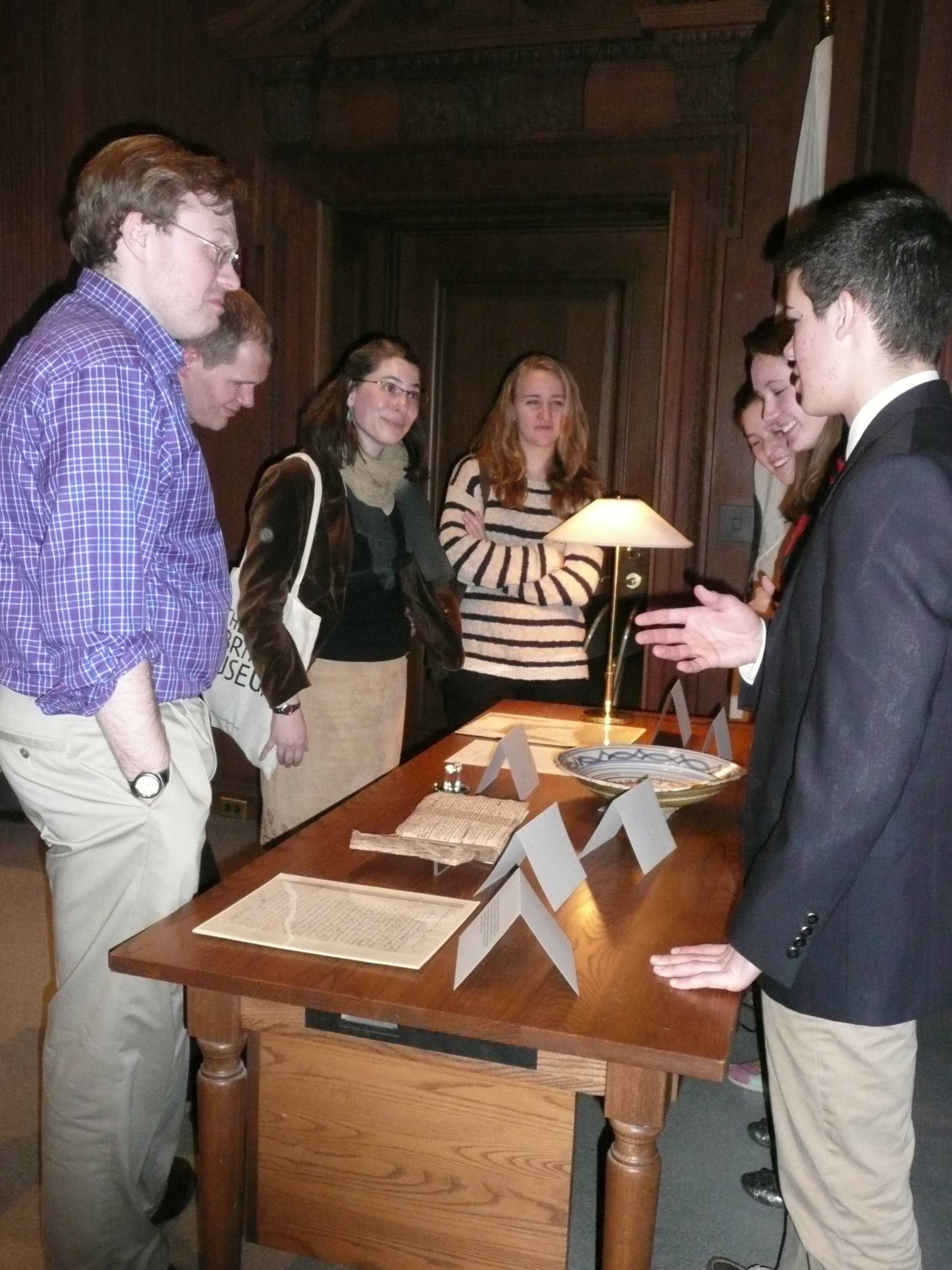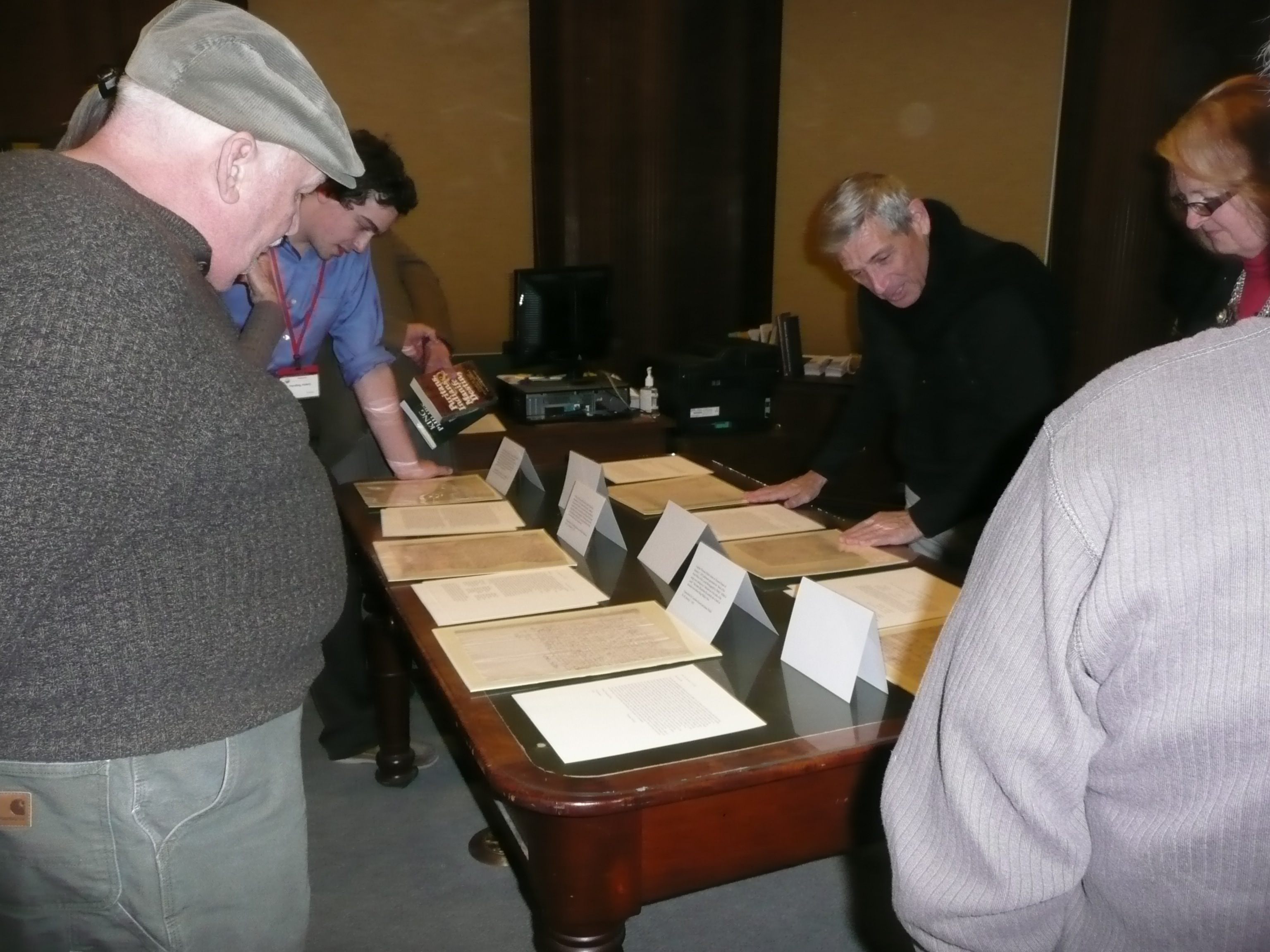By Kathleen Barker, Education Department
Pop Quiz! Which bloody seventeenth-century skirmish brought English settlers into conflict with local Wampanoags? The answer, of course, is King Philip’s War, a series of attacks that killed many colonists and Native American in 1675 and 1676, destroyed several New England towns, and cost the life of Wampanoag leader Metacom (or King Philip). Over the past few months, thirty-plus students from Boston University have been scouring the Society’s collections to learn more about this intriguing episode from Massachusetts’s past. Under the tutelage of Professor James Johnson, students became historians as they examined artifacts, transcribed documents, and tried to make sense of the relationships forged between colonists and native inhabitants, and where those relationships disintegrated.
 Students visited the MHS several times, both as a class and as individual researchers. They had the opportunity to analyze a series of manuscripts and published documents. Pamphlets such as John Eliot’s Strength Out of Weakness (1652), describe Puritan’s attempts to convert Indians to Christianity, while other works, like William Hubbard’s The Present State of New-England: Being a Narrative of theTroubles with the Indians in New-England (1677) suggest that not all native peoples were willing to adopt English customs or religious principles. Class members also transcribed a number of documents from the Winslow family papers, which include the papers of Edward and Josiah Winslow, colonial governors of Plymouth Colony from 1638-1680. Several letters in the collection detail colonists’attempts to negotiate with Metacom and other native inhabitants, even as native groups began forming alliances against the English settlers.
Students visited the MHS several times, both as a class and as individual researchers. They had the opportunity to analyze a series of manuscripts and published documents. Pamphlets such as John Eliot’s Strength Out of Weakness (1652), describe Puritan’s attempts to convert Indians to Christianity, while other works, like William Hubbard’s The Present State of New-England: Being a Narrative of theTroubles with the Indians in New-England (1677) suggest that not all native peoples were willing to adopt English customs or religious principles. Class members also transcribed a number of documents from the Winslow family papers, which include the papers of Edward and Josiah Winslow, colonial governors of Plymouth Colony from 1638-1680. Several letters in the collection detail colonists’attempts to negotiate with Metacom and other native inhabitants, even as native groups began forming alliances against the English settlers.

All of this hard work culminated in an exhibition and public program hosted by the MHS on 13 December 2012. More than 100 guests visited the MHS that evening to hear the students talk about their discoveries. The program began with Professor Johnson and his students providing a brief introduction to the principles of the course, as well as colonial-native relations, growing tensions,and the war itself. Students then became docents as program attendees viewed a special exhibition assembled by the class. Small groups of students discussed the particular materials they had studied, while also answering questions about their experiences as budding history detectives.

Ultimately, this program combined many of the things that we love to do here at the MHS: we introduced a new group of people to our collections through our research library; we piqued the interest of young historians; and we provided history enthusiasts with an entertaining and informative program. For more information about visiting our library to conduct your own research, checkout our visiting the library page. You can also visit our web calendar for information about upcoming education & public programs.

